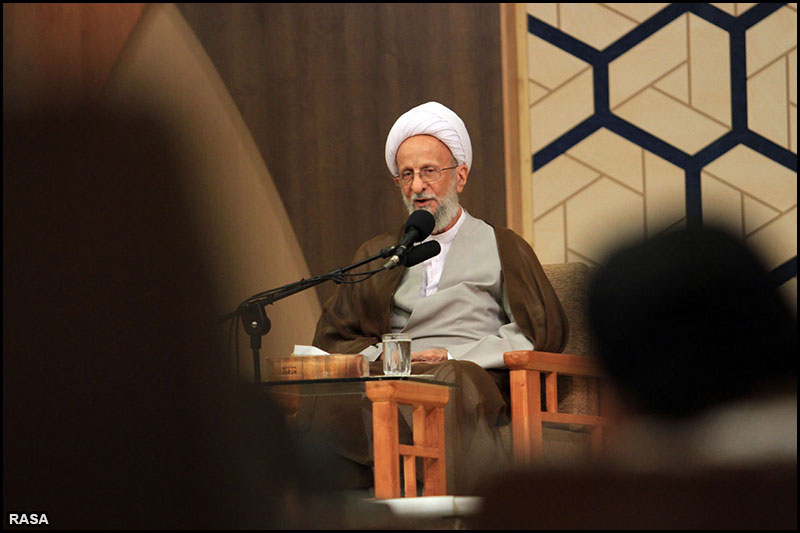
Rasa News Agency reports - Ayatollah Mohammad Taqi Mesbah-Yazdi, the head of the Imam Khomeini (RA) Education and Research Institute, has met with Indian and Pakistani scholars and seminaries in the Institute’s auditorium in the holy city of Qom.
In his speech to the scholars and seminarians, His Eminence explained the role of the divinely-sent prophets in purifying souls, teaching and training mankind, especially the role of the seal of the prophets, Muhammad (S), who left behind two weighty things – the Holy Quran and the Ahlul-Bayt (A) which will remain among the Muslim community as a testament to his divine teachings until the Day of Judgement. He encouraged the seminarians to recognize and benefit from the knowledge of the Ahlul-Bayt (A) and their divinely-ordained status.
He recommended that seminarians study the Arabic language, as it is the key to understanding Islamic sciences, especially the Holy Quran which was sent down in the Arabic language. His Eminence explained that the Quran has been divinely protected from all deviation. He encouraged the seminarians to learn from the vast knowledge contained within the Quran and implement it in their daily lives. He encouraged the seminarians to remain pious and obedient to the commands of God in order to protect Islam and stated that by protecting their own desires, they could help promote religious education in society.
Ayatollah Mesbah-Yazdi spoke about the role of Wilayat al-Faqih (Guardianship of the Jurisprudent) in the Islamic society, saying that it is a coach for the guidance of society. He stated that Wilayat al-Faqih is rooted in Islamic narrations which Imam Khomeini (RA) renewed. With his support, the teachings of the Prophet Muhammad (S) and the Infallible Imams (A) bore fruit and were implemented in the Islamic Republic of Iran.
He also stressed that there will always be competent teachers in the seminary to help the students advance in their studies. However, if a student is lazy and does not make use of the teachers, they will not reach their aims; just as during the time of the Infallible Imams (A), the people did not take advantage of their knowledge and presence, despite the Imams (A) warning them to make use of them before they are gone.
111/112